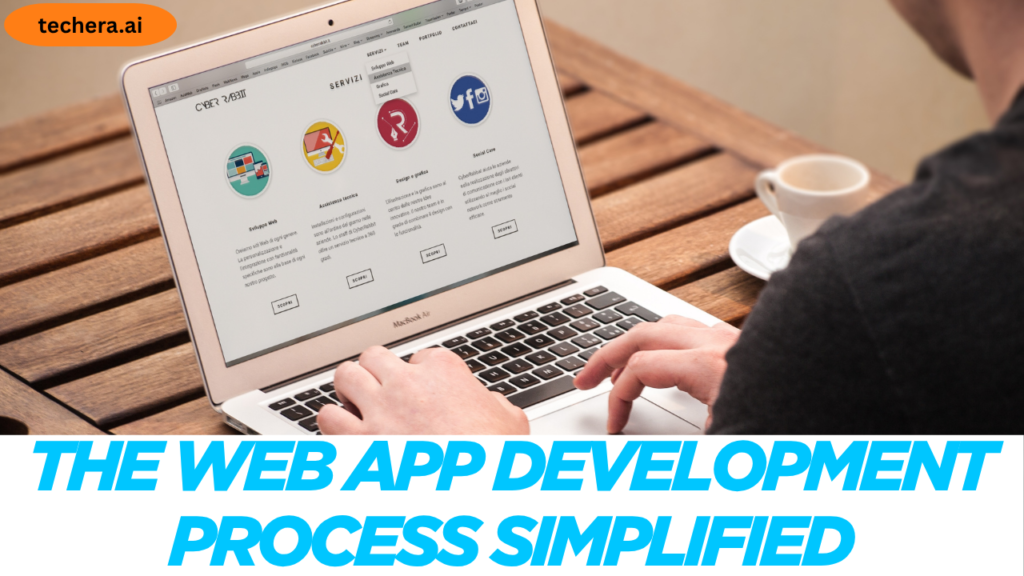
If you’re a startup founder or entrepreneur without a tech background, this beginner-friendly guide breaks down what is web app development in simple terms. Learn how web apps work, how they differ from websites and mobile apps, and why understanding them is essential for growing your business. Perfect for non-tech founders looking to build smart digital solutions.
Introduction
Let’s be honest — if you’re a startup founder without a tech background, phrases like “React,” “APIs,” and “back-end servers” can feel like they’re in another language. The issue is that understanding what is web app development doesn’t have to be hard. You don’t need to write code. You just need to know the what, why, and how—and that’s exactly what we’re covering in this guide.
Why This Topic Matters for Founders
Your startup probably needs a digital product. Whether it’s a dashboard, platform, or internal tool — a web app could be the smartest and most cost-effective route to build your MVP and grow fast.
Web Apps vs Traditional Websites
A website shows information. A web app does things. If users can log in, shop, schedule, or interact with data—you’re looking at a web app, not just a website.
The Basics of Web App Development
What is a Web App?
Software that runs in a browser is called a web application. Think Gmail, Trello, or your favorite food delivery app’s web version. You don’t need to install anything — just go to the URL, log in, and get to work.
How It Works Behind the Scenes
Imagine a restaurant:
- The front-end is what the customers see — the menu and ambiance.
- The kitchen, which handles order administration and cooking, is the back-end.
- The database is the fridge — where all the ingredients (data) are stored.
Together, they deliver a smooth user experience.
Key Components of a Web App
- Frontend (Client-Side): Everything users interact with — buttons, forms, dashboards.
- Backend (Server-Side): Manages requests, connects to databases, and handles logic.
- Database: Stores user info, product listings, messages — you name it.
Web App vs Mobile App
What’s the Difference?
- Web App: Accessed via browser, works across devices.
- Mobile App: Installed from an app store, built for iOS or Android.
When to Choose a Web App Over a Mobile App
If you want speed, cost-efficiency, and wide accessibility — go with a web app first. Mobile apps can come later if needed.
Key Technologies Involved
Don’t worry — you don’t have to learn them, but it helps to know the basics.
Front-End: What Users See
Tools like:
- HTML, CSS, JavaScript
- Frameworks: React, Angular, Vue.js
Back-End: The Brain of the Operation
Handles:
- User authentication
- Payments
- Business logic
Tech used: Node.js, Python, PHP, Ruby
Database: Storing and Managing Data
Common tools: MySQL, PostgreSQL, MongoDB
Common Types of Web Apps
Progressive Web Apps (PWAs)
They feel like mobile apps but live in browsers. Can even work offline!
Also Read : What is Web App Development and How It Can Help Your Business Grow
Single Page Applications (SPAs)
Load content dynamically without refreshing — think Gmail or Slack.
Multi-Page Applications (MPAs)
More traditional — each click loads a new page (e.g., Amazon).
The Web App Development Process Simplified

Step 1: Planning Your Idea
Outline what your app should do, who it’s for, and what problems it solves.
Step 2: Wireframing and Design
Sketch the layout and flow. Tools like Figma help bring ideas to life visually.
Step 3: Development
Developers build the front-end, back-end, and database functionality.
Step 4: Testing
Ensure it works on all devices, loads fast, and is secure.
Step 5: Launch and Feedback Loop
Push your app live, gather user feedback, and keep improving.
Why Should Founders Care About Web Apps?
Cost-Effective and Scalable
Build once, run anywhere. Much cheaper than separate mobile apps.
Always Accessible
Your customers and team can use it from any device, anytime.
Easier to Maintain and Update
No app store approvals. Just push updates directly to users.
Business Use Cases of Web Apps
E-Commerce Platforms
Run your online store with inventory, payments, and customer support.
SaaS Products
Offer your product as a service — from project tools to analytics dashboards.
Booking and Scheduling Tools
Great for salons, clinics, consultants, and more.
Internal Team Tools
Manage projects, HR tasks, or operations with custom internal apps.
Mistakes to Avoid as a Non-Tech Founder
Underestimating the Process
Web apps aren’t overnight projects. Allow time for proper planning and testing.
Not Focusing on the User Experience
Function is great, but usability is what keeps users coming back.
Ignoring Security and Performance
Your app handles user data — don’t skimp on protecting it.
Tips for Hiring the Right Development Partner

What to Look For in a Developer or Team
- Strong portfolio
- Good communication
- Willingness to explain things in plain language
The Importance of Communication and Clarity
Set clear goals, timelines, and responsibilities. Overcommunicate if needed.
Cost and Time Expectations
Factors That Influence Cost
- Number of features
- Level of complexity
- Design quality
- Team experience
Basic MVPs can cost $5k–$20k, while full-scale apps may go up to $100k+.
Timeline Based on Project Size
- Simple: 1–2 months
- Mid-size: 3–4 months
- Complex: 6 months or more
Conclusion
You don’t need to be a coder to lead a successful tech startup. Understanding the what is web app development helps you communicate with your team, make smart decisions, and avoid costly mistakes. Start small, think big, and always keep your users at the center.
Frequently Asked Question
Q. What skills do I need to manage a web app?
A. You don’t need to code, but understanding project management, analytics, and user feedback tools helps a lot.
Q. Is a web app enough or do I also need a mobile app?
A. Start with a web app. If necessary, you can always use mobile apps to grow later.
Q. How do I protect my web app from hackers?
A. Use secure coding practices, SSL certificates, regular updates, and professional hosting.
Q. Can I update my web app after launch?
A. Absolutely! That’s one of the key benefits — updates can be rolled out instantly.
Q. What platforms can host my web app?
A. Popular options include AWS, Heroku, Netlify, Vercel, and DigitalOcean.

